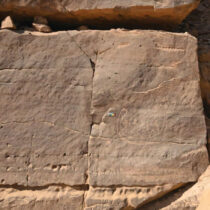Radboud University in the Netherlands is recruiting for a two-year postdoctoral research position on Archaeology of Roman Failure. There is considerable scope for designing one’s own project within the broad parameters sketched in the ad.
Are you a Roman archaeologist passionate about marrying empirical detail to large-scale socioeconomic questions? The Roman Archaeology expertise group at the Radboud Institute for Culture and History is looking for a postdoctoral researcher to work closely with the group’s Chair on developing a project on Roman failure. You will collect and analyse archaeological data to investigate what happened when investments did not pay off as expected.
In this position for two years you will contribute to a larger developing project that aims to take a case study-based approach to investigate the causes of and responses to failure in the Late Republican and Early Imperial Roman world. Failure is here defined as instances when risk caught up with plans. The Roman world was a high-risk environment, but this risk and its consequences were not equally distributed. A focus on failure favours socioeconomic processes of boom and bust at the expense of narratives of smooth growth and success. Overarching questions include whether failure was tied to a particular vision of the future; how failure intersects with precarity and privilege (who could fail; who could bounce back; who was marked as a failure); and whether and when failure triggered increased investment and fuelled growth.
As a postdoctoral researcher, you will collect data from published and unpublished excavation reports of Late Republican and Early Imperial Roman sites with evidence of investments that were abandoned, short-lived, or reoriented. These might include settlements, agricultural installations, infrastructure, or crafts and industries. Preference will be given to projects focusing on Roman Italy, but proposals on other areas of the Roman Empire will also be considered. You will build a database cross-referenced with a GIS platform in order to detect chronological, spatial, and organisational patterns, and carry out quantitative and/or qualitative analyses responding to some of the overarching questions as set out above.
Please circulate to anyone who might be interested and encourage them to reach out directly to [email protected]. Applications close on March 31st.





